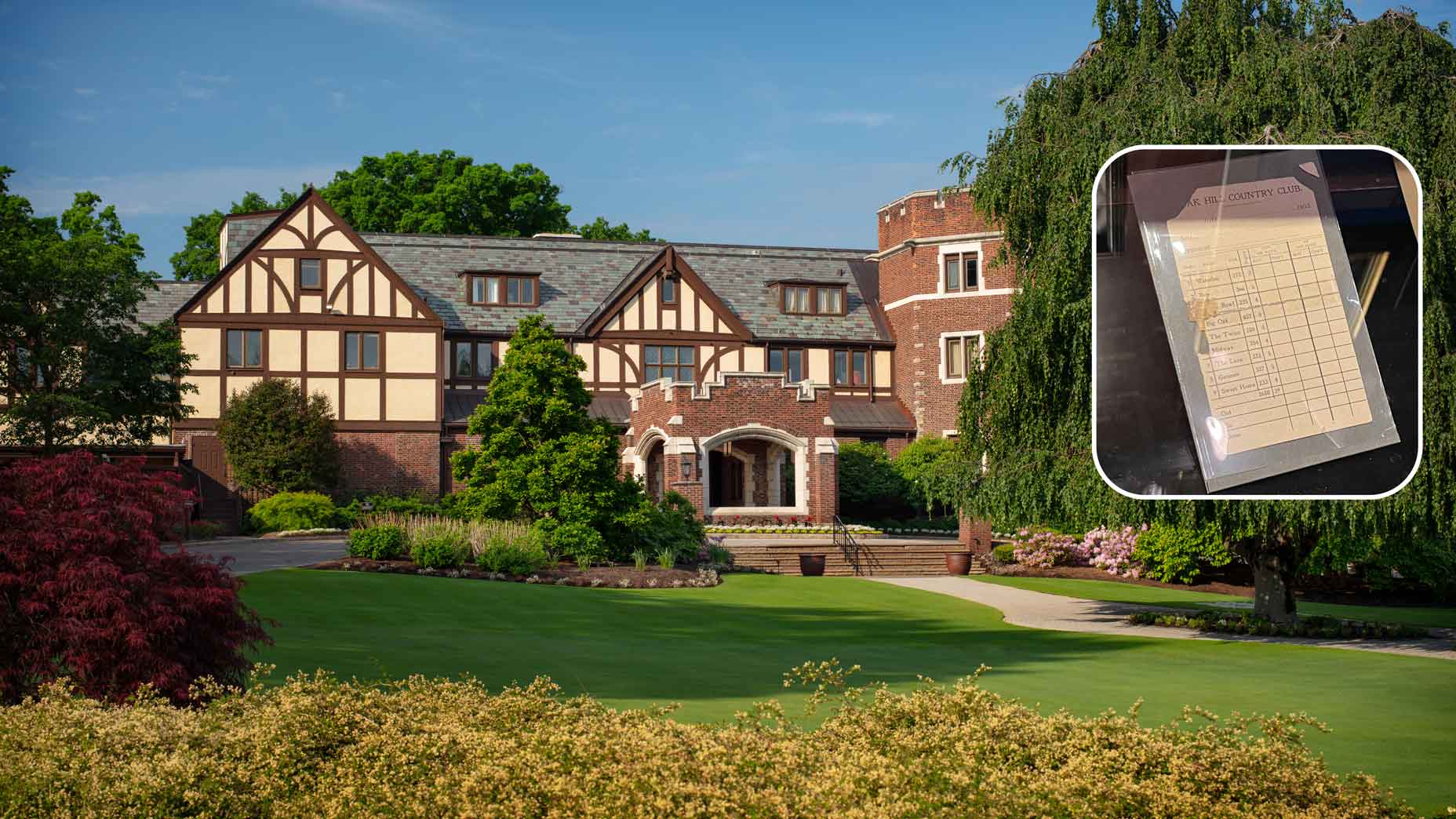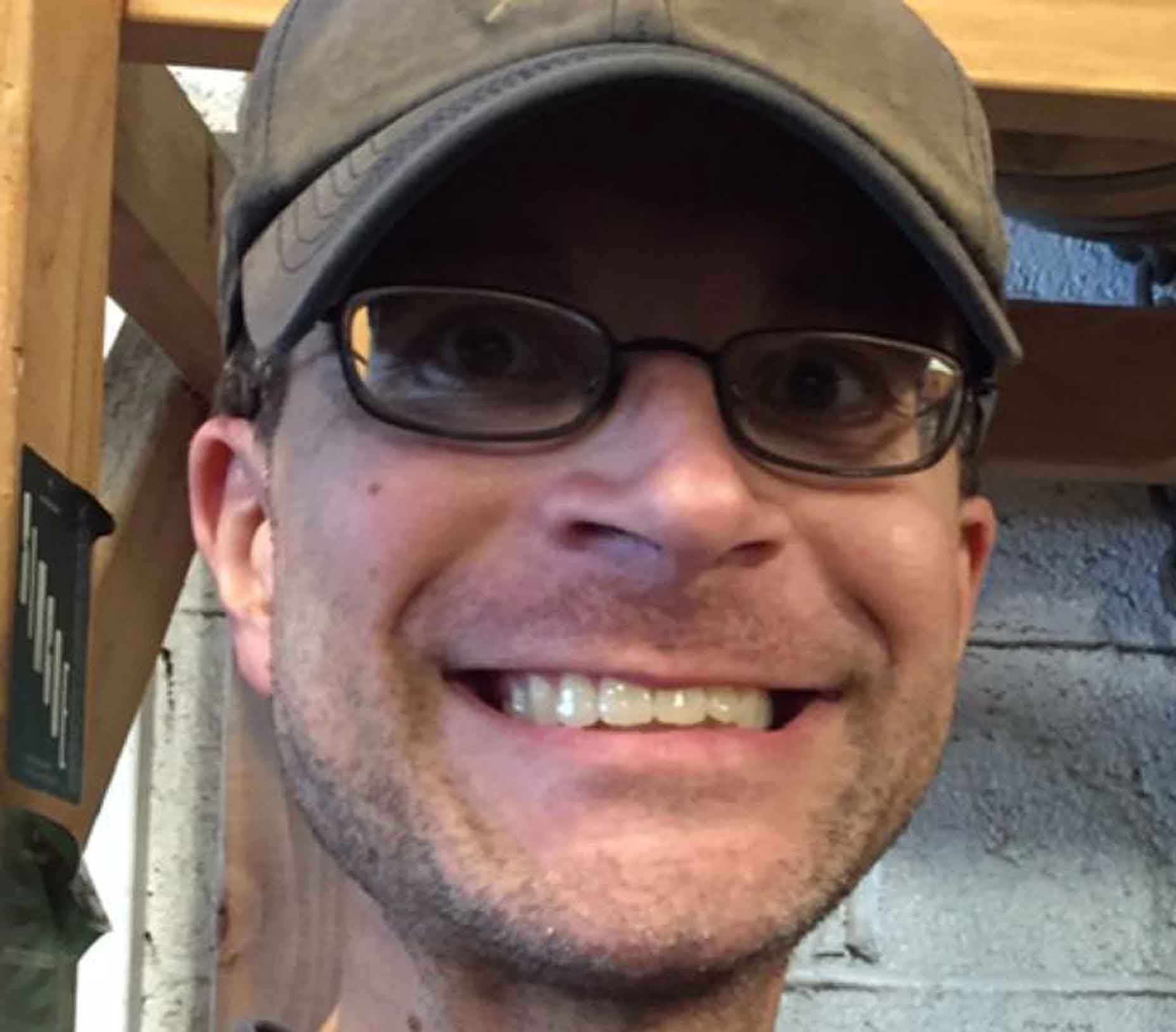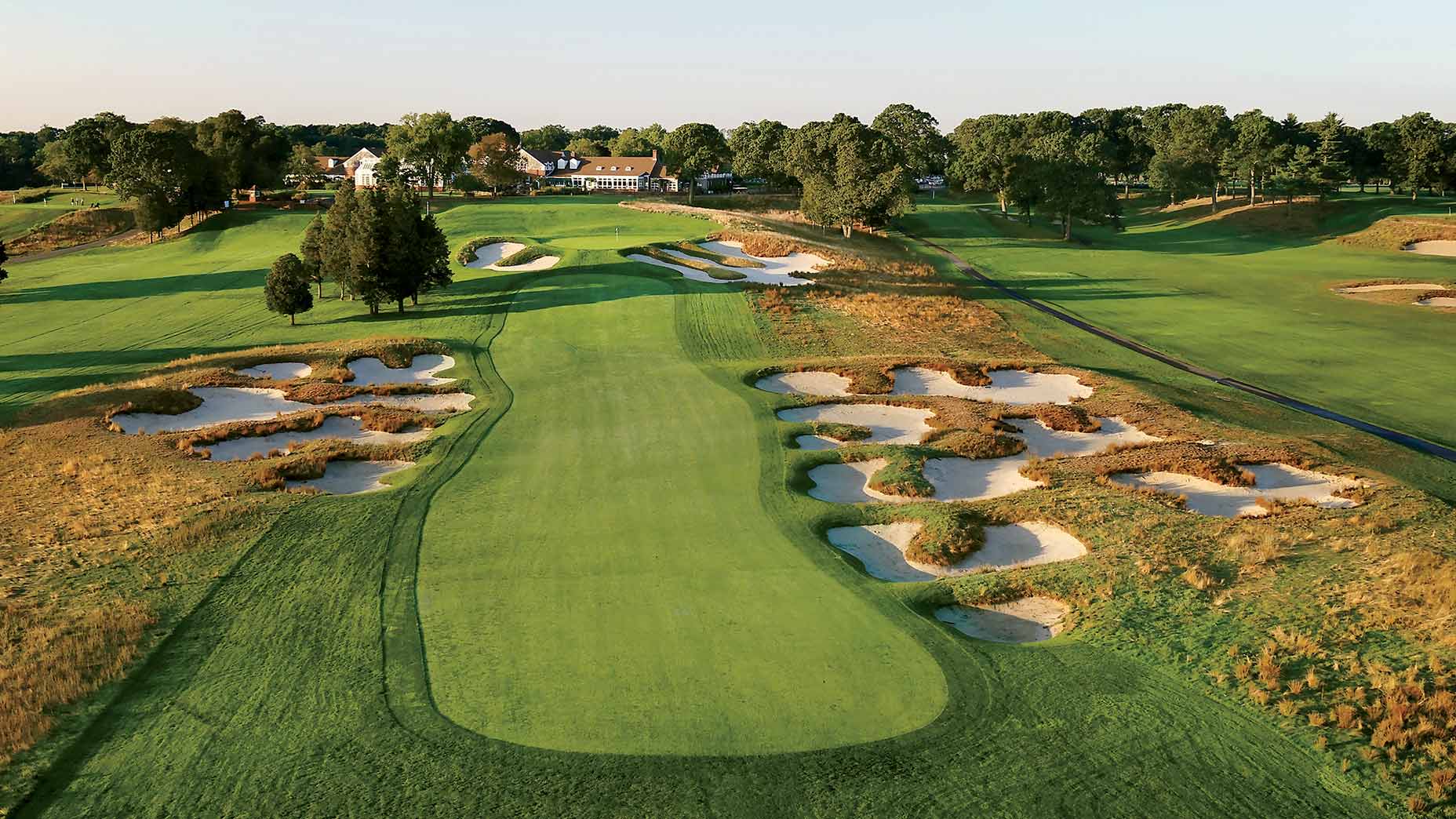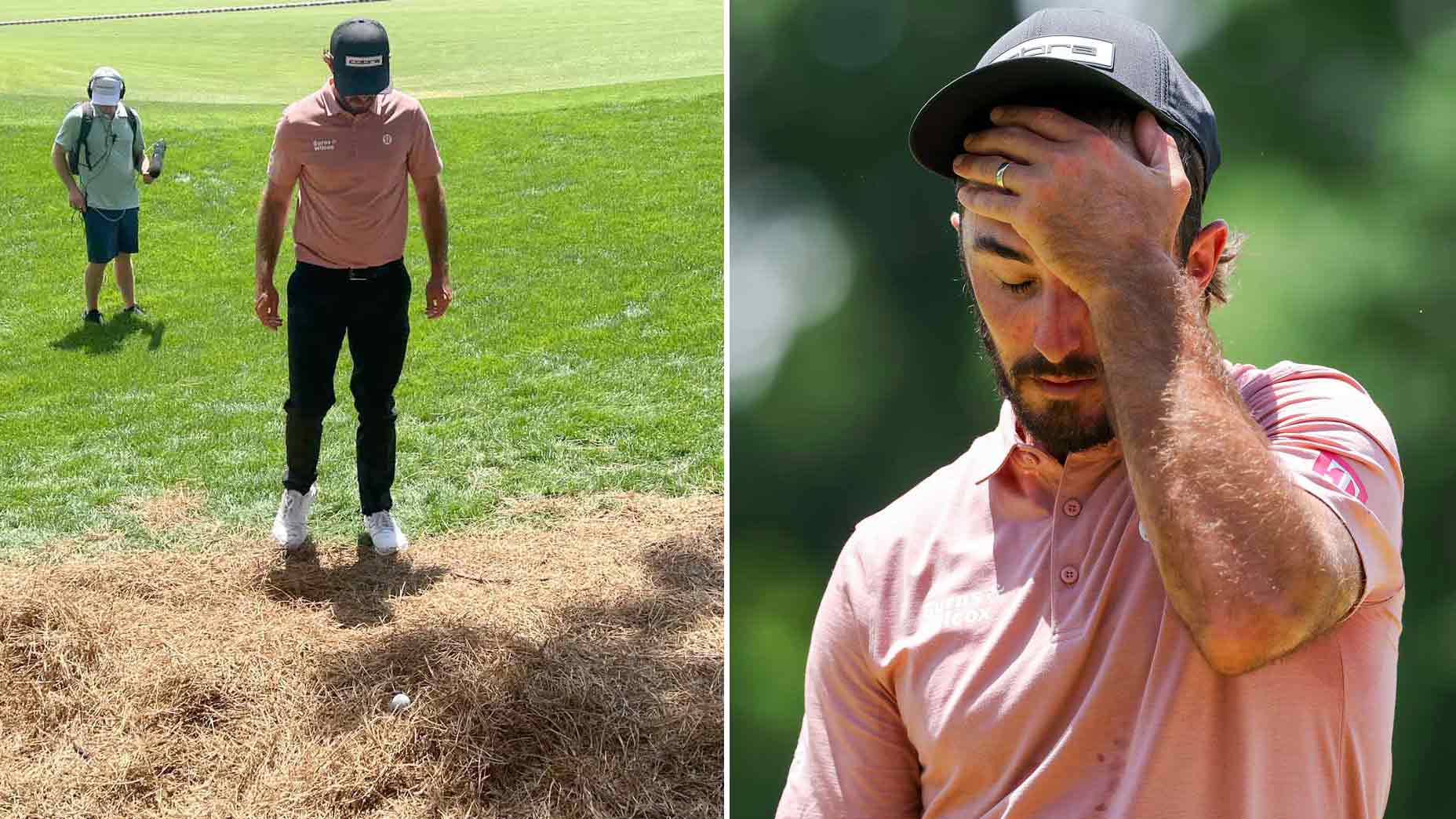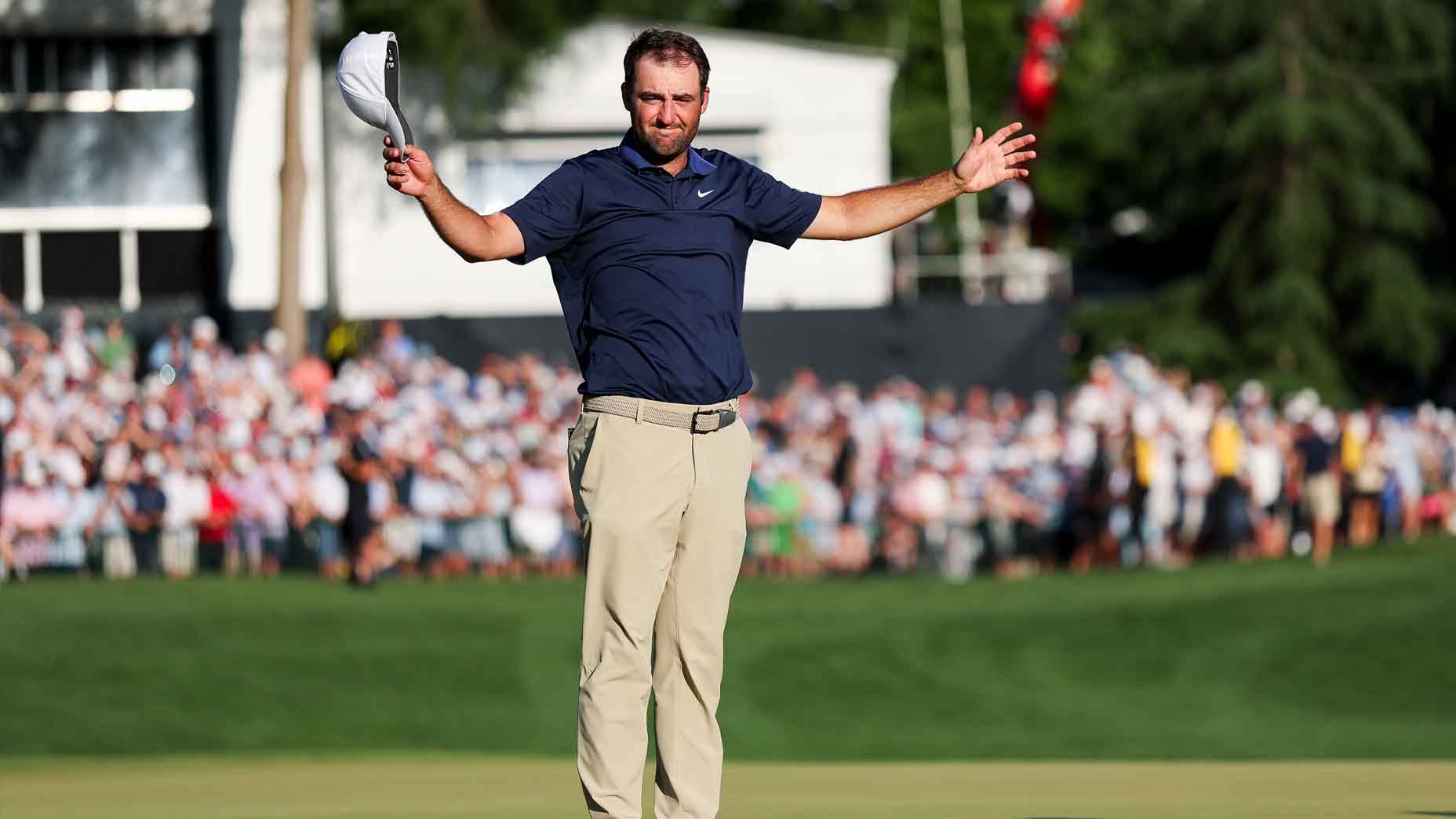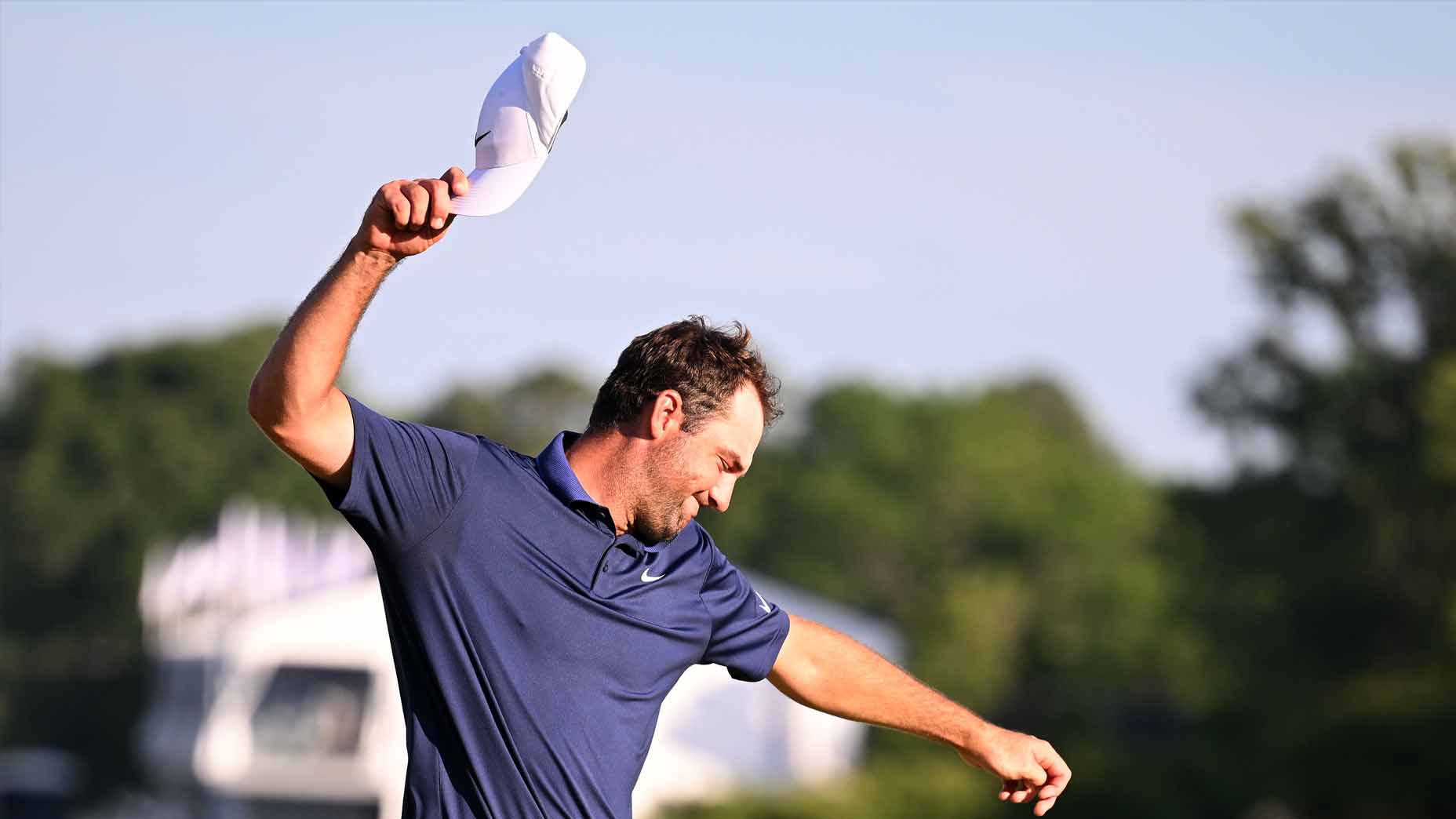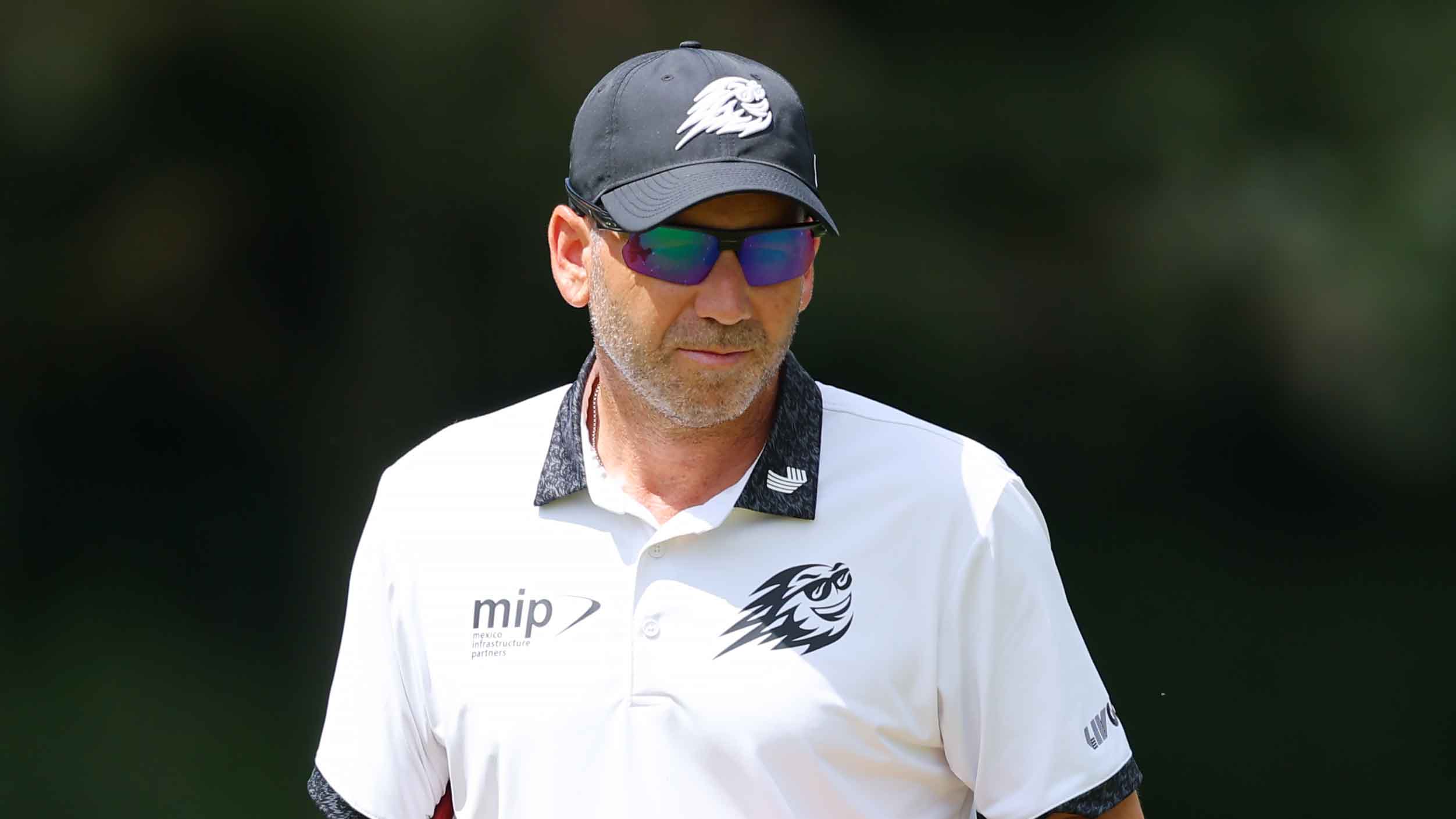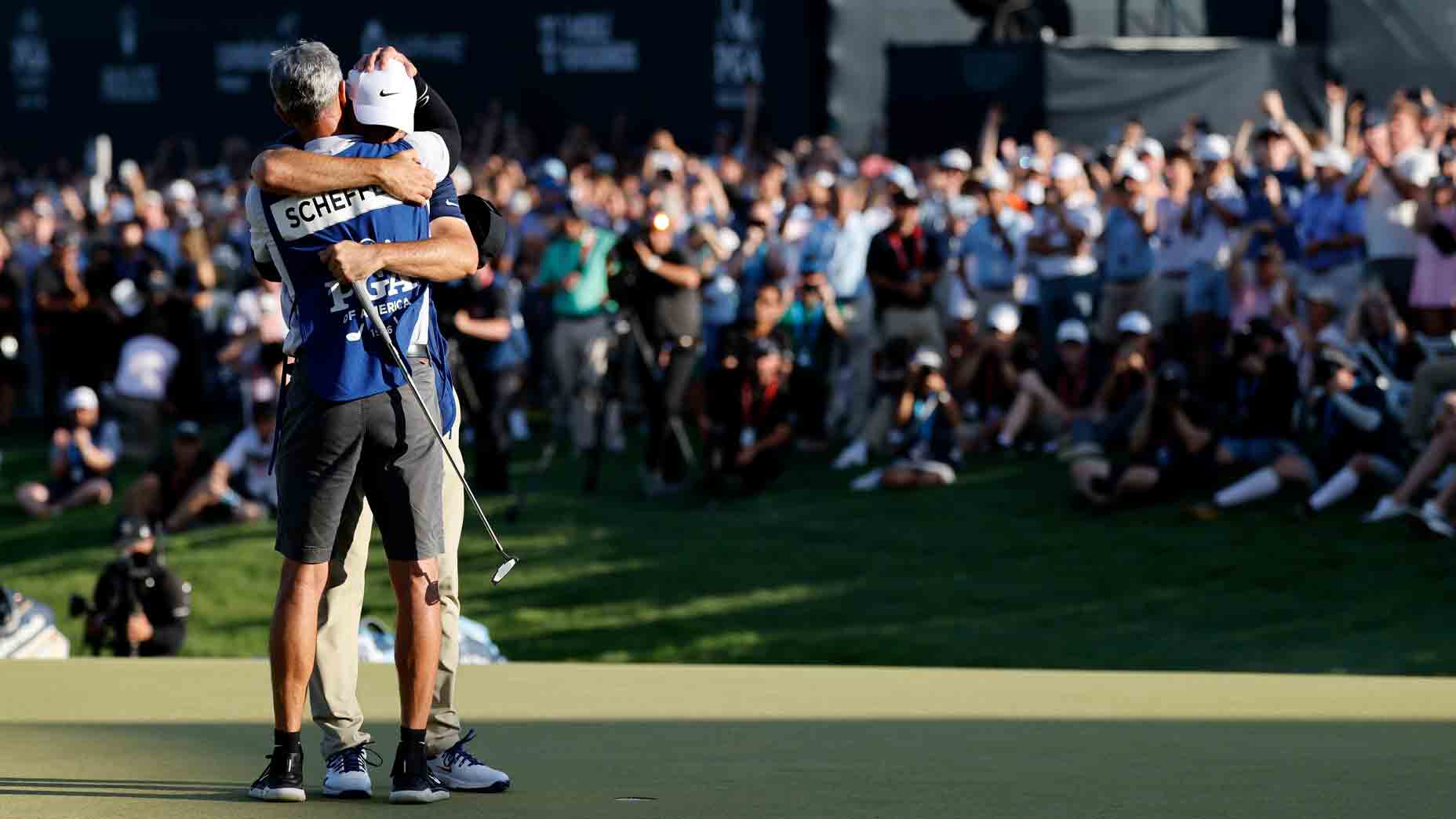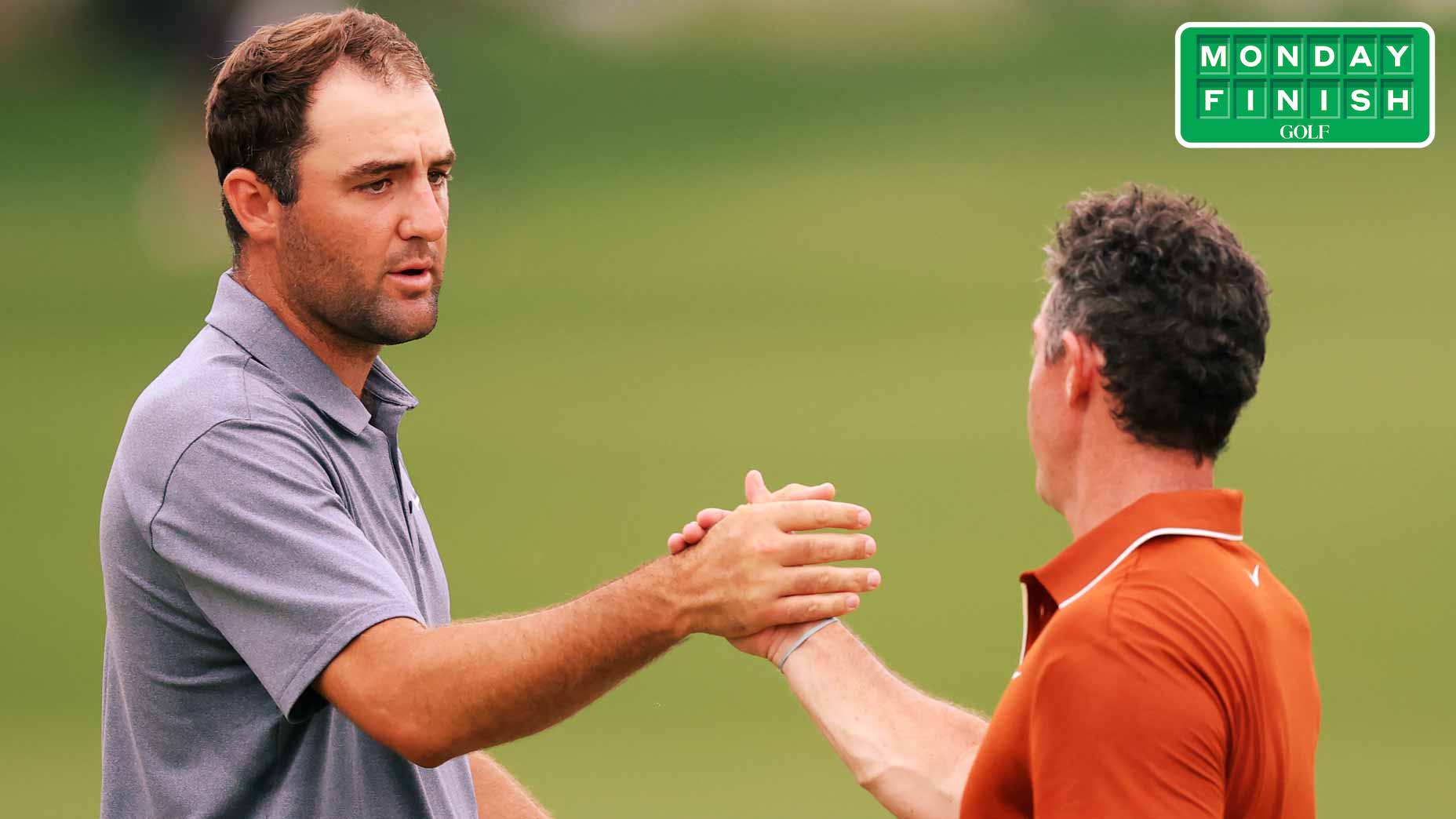ROCHESTER, N.Y. — Aaron Rai tried. I tried. Nothing. The water moved, but that was just the wind. There was a steady buzz, but that was only the lawnmowers. He then asked the question that both he and I will remember well past not only this PGA Championship at Oak Hill Country Club, but, well, maybe anything.
Should we try…together?
It was worth a shot.
We paused. I counted down with my fingers. Three. Two. One. All together now.
Revamped Oak Hill Country Club takes center stage at 2023 PGA ChampionshipBy: Josh Sens
“Buffalo Bill …
“We’d really like to see you …
“Please appear.”
A bit later, I heard a voice.
How in the name of Wanamaker did I get here? To answer that, we must offer another question, the one that’s facing the PGA Championship this week. A fantastic, one-of-a-kind, even a bit unreal question:
Will the ghost of Buffalo Bill visit the 7th hole?
After all, the legend goes, he has before.
The history of Oak Hill is a rich one: It has hosted PGA Championships, U.S. Opens and even the Ryder Cup. It was established more than a century ago and is listed on the National Register of Historic Places. And before its greens and fairways were designed, it was fertile hunting and fishing ground for Rochester-area residents — including, some say, Buffalo Bill Cody, who at that point was becoming perhaps the most famous performer on the planet.
Has Buffalo Bill continued to roam Oak Hill’s grounds?
Would he appear again this week, at one of golf’s majors?
And could I possibly see him?
As I went looking for a ghost, I talked with people from here to Wyoming. I met a pair of proud Rochesterians, one an Oak Hill member, the other a psychic medium, whose shop is right down the road from the club. I stood on the course at 7 p.m., during PGA week, asking a long-dead performer to appear.
Like most everything these days, our story began online. With a single tweet.
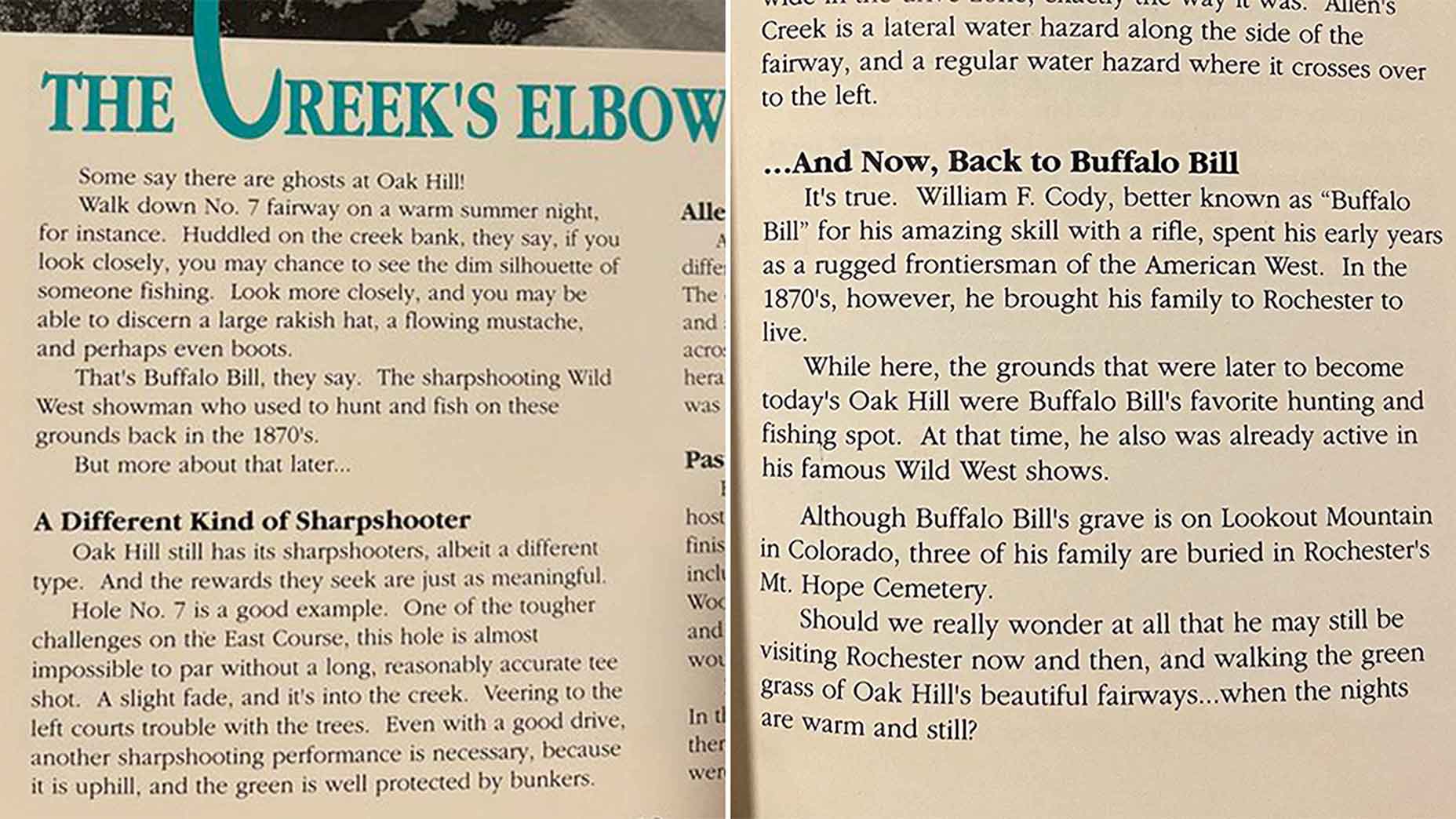
“Will the Ghost of Wild Bill Hickok make an appearance at the 2023 @PGAChampionship? It has been said that Hickok’s ghost still haunts the 7th hole at Oak Hill, where he used to hunt back in the 1870s. More on the next @talkingolf history podcast with special guest @GreenGCA.”
The Society of Golf Historians Twitter account, helmed by Connor Lewis, passes along all kinds of goodies from yesteryear. This one, posted on April 23, was curious. On the podcast, Lewis talked with Andrew Green, who was in charge of the recent Oak Hill restoration, and he brought up the ghost, but no, Green hadn’t seen it.
I reached out to Lewis for more information, and he sent me two pictures: They were pages from the pamphlet “The Crown Jewels of Oak Hill,” written in 1989 by then-club historian Donald Kladstrup. Here is the wording from the first photo, which was page 18:
“Some say there are ghosts at Oak Hill!
“Walk down No. 7 fairway on a warm summer night, for instance. Huddled on the creek bank, they say, if you look closely, you may chance to see the dim silhouette of some fishing. Look more closely, and you may be able to discern a large rakish hat, a flowing mustache, and perhaps even boots.
“That’s Buffalo Bill, they say. The sharpshooting Wild West showman who used to hunt and fish on these grounds back in the 1870s.”
On the next page:
“William F. Cody, better known as ‘Buffalo Bill’ for his amazing skill with a rifle, spent his early years as a rugged frontiersman of the American West. In the 1870s, however, he brought his family to Rochester to live.
“While here, the grounds that were later to become today’s Oak Hill were Buffalo Bill’s favorite hunting and fishing spot. At that time, he also was already active in his famous Wild West shows.
“Although Buffalo Bill’s grave is on Lookout Mountain in Colorado, three of his family are buried in Rochester’s Mt. Hope Cemetery.
“Should we really wonder at all that he may still be visiting Rochester now and then, and walking the green grass of Oak Hill’s beautiful fairways … when the nights are warm and still.”
Whoa! At this point, I had so many questions.
Who had seen Buffalo Bill?
What did they see?
And when is his tee time on Thursday?
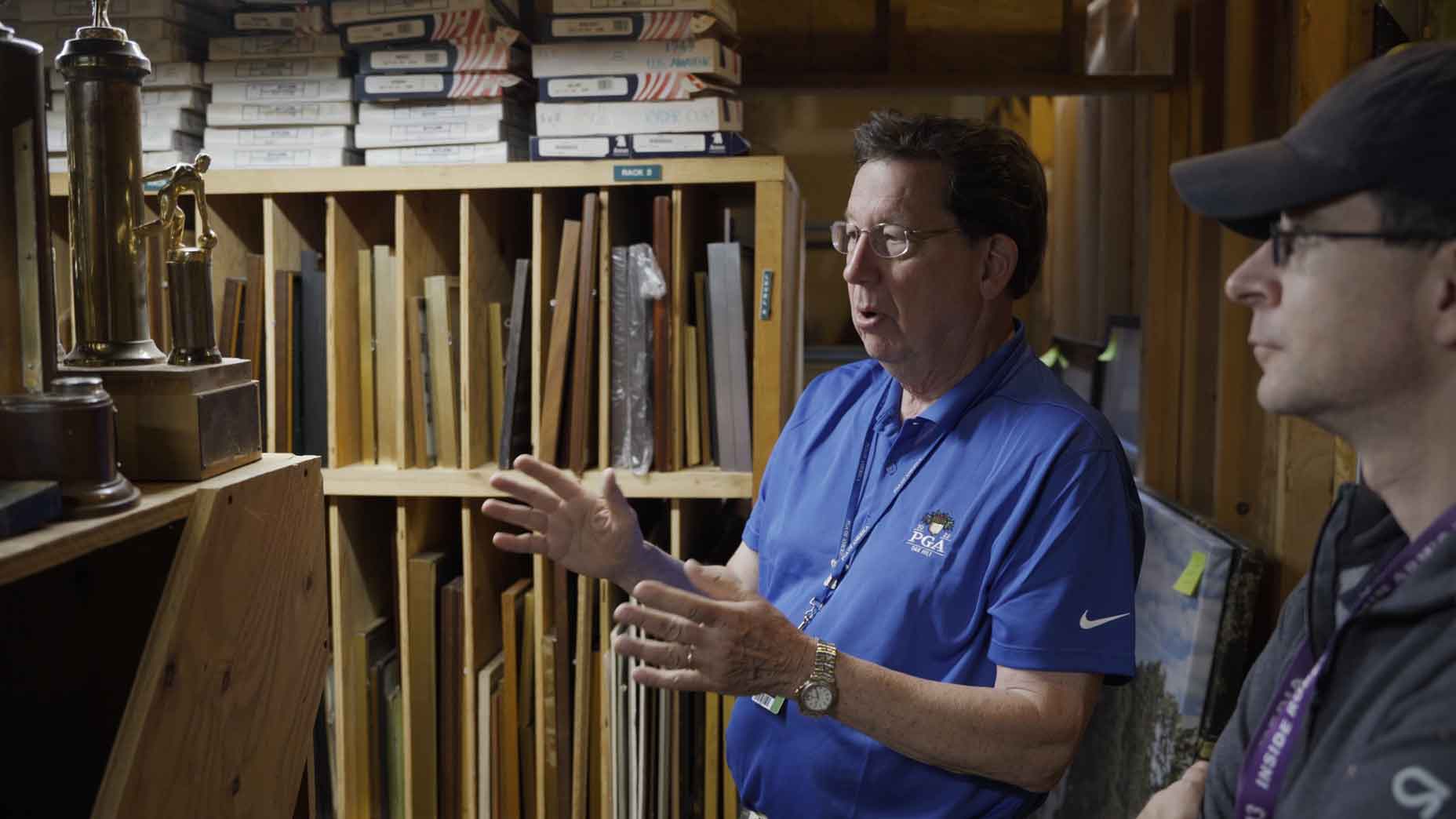
The answers to at least some of those questions may have been found with the club. I contacted Oak Hill and got a reply from the current club historian, Fred Beltz. (CC’d on it were the head pro and the club’s curator.)
“The story about Buffalo Bill is true, if a bit fanciful.
“Buffalo Bill traveled with his family, and when they were tired of constantly being on the move, he rented them a home in Rochester for a couple of years. Between Wild West shows, he would return to Rochester for visits.
“At that time, Oak Hill’s property would have been nearly uninhabited and probably excellent for hunting and fishing. Whether or not Buffalo Bill ever actually hunted on the property is unknown — at least, unknown to me.”
Beltz has lived in Rochester since the early ’70s, and he’s been a member of Oak Hill since 1995 — the Ryder Cup year. He became club historian 10 years after that, succeeding Kladstrup — who died in the late 2000s. Beltz is friendly, and not just because he was willing to take a call from someone he’s never met, about a subject that we’ll just call…special.
And the retired 74-year-old had heard the story.
“My first thought was, that can’t be true.”
He laughed.
Beltz knew no one who had seen Buffalo Bill. In fact, of the 1,000 or so Oak Hill members, Beltz guessed that maybe only 10 or so had even heard the tale. Thinking that Kladstrup liked a good story, he wondered if the old club historian was being “fanciful.”
The 7 coolest things I saw in the Oak Hill clubhouse at the PGA ChampionshipBy: Jack Hirsh
And yet…
“I will say this about Don: He was very particular. He would not put something in writing that — he said, when I took over, now you be careful about your facts, because if you print it, it becomes fact.”
There’s a good lesson there. But I had to ask the question.
Had he seen the ghost of Buffalo Bill at Oak Hill?
Beltz laughed again.
“Honestly, I would have to say I have not.
“On the other hand, when you’re there on a spring or fall day, realize that it is a little bit of a valley, and the water will tend to, you know — it can get misty. It can get kind of misty, and that’s the kind of environment where I imagine a ghost being. You know, kind of disappearing into the mist, through the fog a little bit. So it would be a place where maybe a ghost would likely hang out.”
One more question from me. I asked as politely as I could. I was nervous.
“I’m going to walk down to the 7th hole and see if I can see it,” I started. “Would you want to come down there with me? And we’ll both check it out together?”
“Surrrre. Yeahhhh, I can do that with you.”
YES!
We set our meeting for 4:30 p.m. Tuesday.
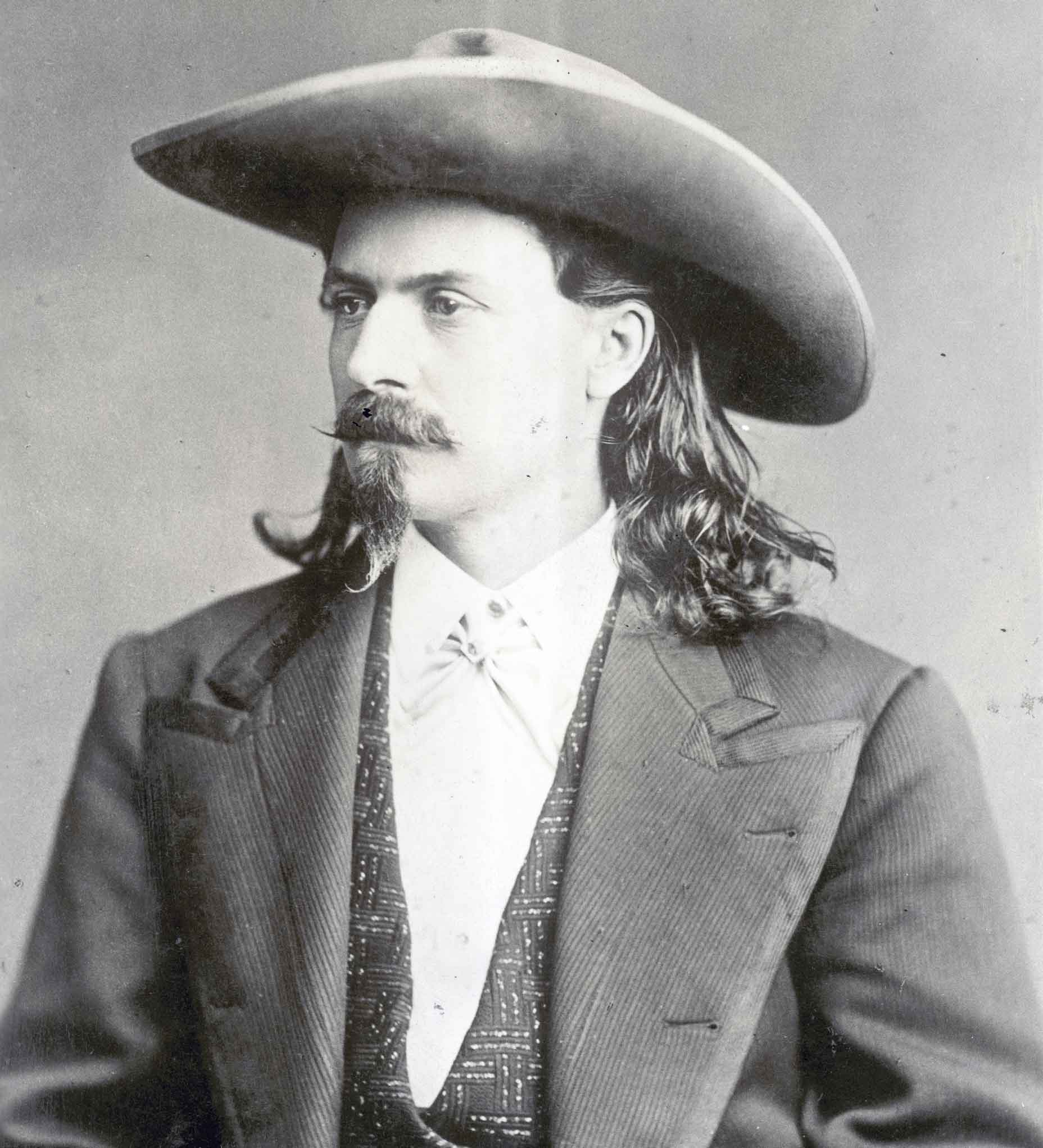
If I was going to go looking for Buffalo Bill, I needed to know more about the man. I had a vague sense that he was one of the biggest names during the Wild West, and I knew that Buffalo’s NFL team was named after him. But who was he?
To learn more, I called up the Buffalo Bill Center of the West in Cody, Wyoming — Cody is Buffalo Bill’s last name, and yes, he founded the town. I talked with Sam Hanna, a curatorial assistant at the museum.
William Cody was born in 1846, died in 1917, and was mostly everything in between. In general order, he was an army scout. He was a hunter (hence the nickname). He was a showman, and here is where he gained most of his fame. He performed in Western shows. He had his own troupe. He traveled around the country and then the world, including shows for the queen of England.
But none of that last paragraph does Buffalo Bill justice, Hanna would say. I asked him, for this story’s purpose, for an elevator speech on the man, and he laughed.
“It’s nearly impossible to give an elevator speech about Buffalo Bill. … If you think about the fact that around the world, there are people who still think all Americans wear cowboy hats. That’s due to Buffalo Bill. Western movies as we know them, sort of the whole myth of the American West, the images of the American West that we all know about, that are part of our cultural consciousness … it’s the fact that he recreated it in his arena dramas over and over for decades and decades all around the world.”
Buffalo Bill’s time in Rochester was relatively brief. Hanna put him there from 1872 to 1877. But it left an impression. Three of his four children are buried in town.
One last question: Did he play golf?
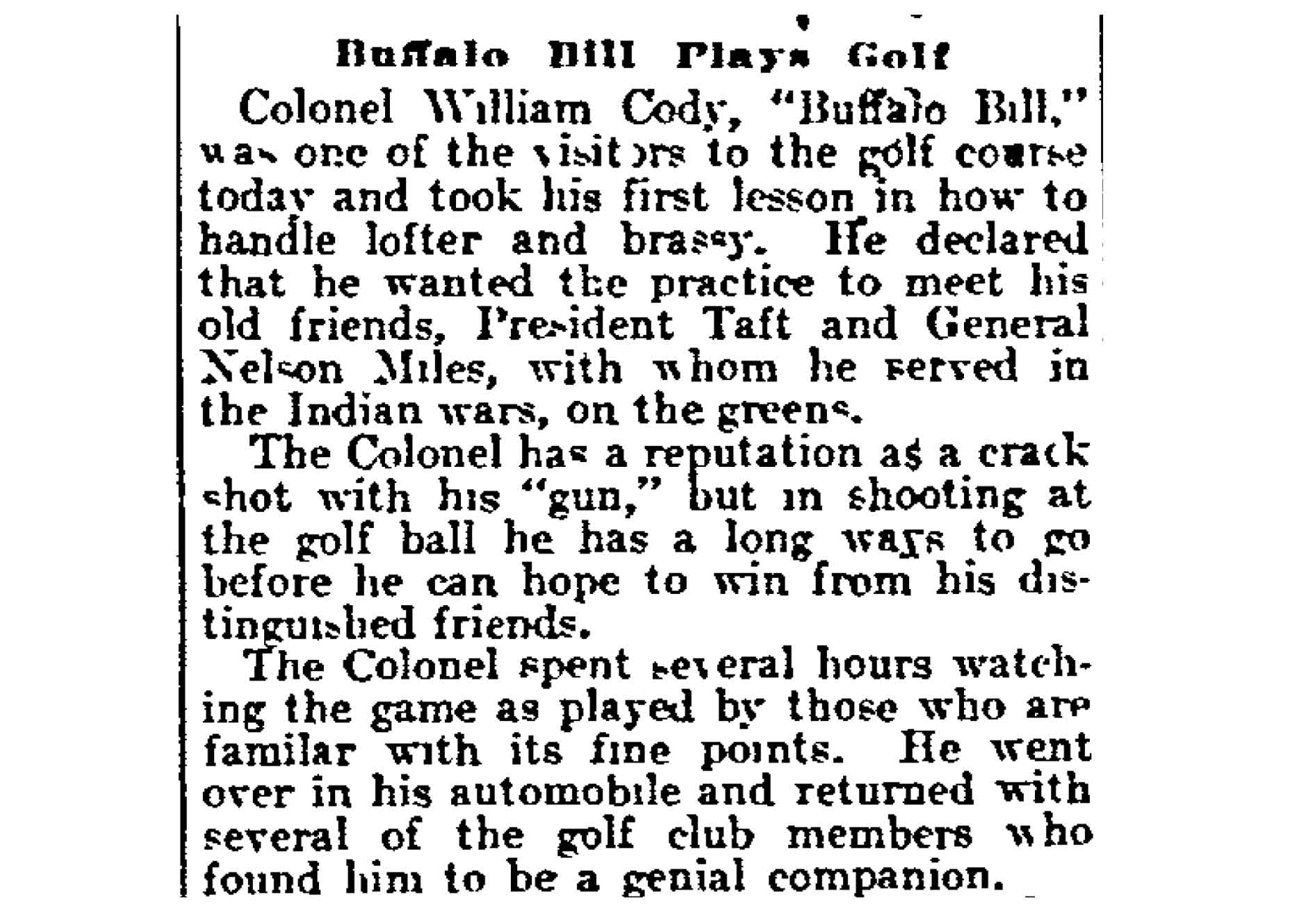
Yes! Hanna shared a newspaper clipping with me, from the Philadelphia Inquirer, printed June 7, 1909. It was short, but great, in the old-timey kind of way.
It was headlined, “Buffalo Bill Plays Golf.”
Colonel William Cody, “Buffalo Bill,” was one of the visitors to the golf course today and took his first lesson in how to handle lofter and brassy. He declared that he wanted the practice to meet his old friends, President Taft and General Nelson Miles, with whom he served in the Indian wars, on the greens.
The Colonel has a reputation as a crack shot with his “gun,” but in shooting at the golf ball he has a long ways to go before he can hope to win from his distinguished friends.
The Colonel spent several hours watching the game as played by those who are familiar with its fine points. He went over in his automobile and returned with several of the golf club members who found him to be a genial companion.”
Now … would we see him on Tuesday? I wanted help from someone who might know how to reach him.
Susan Fiandach had zero doubt about what had been seen.
She’s the co-owner of the Purple Door Soul Source, which is about 5 miles from Oak Hill. She’s friendly. She’s cheerful. She took time out of her day to explain to someone who may not really believe in the supernatural why that may be misguided.
The psychic medium and lifelong Rochesterian had never heard the Buffalo Bill legend. But she was certain it was possible that he had been seen on the golf course.
“Oh absolutely, yes,” she said. “100%.”

In short, she said, your body is energy. And when you die, so does your physical energy. The spirit energy doesn’t.
“If you think about frequencies, like a radio frequency, you know how you’re driving on a thruway and you have your regular car radio on, and all of a sudden you drive out of the frequency of that station that you’re listening to, and then you have to tune into a new frequency. But if you came this way, you’d automatically run into your normal frequency, right?
“So the energetic body sort of lives in a frequency that we pass in and out of on a daily basis. So I think they’re always here, but sometimes our brains are in that same frequency as where the discarnate spirit or the energy person would be in. And that’s when we see them or experience them.”
Then Fiandach noted that we can especially move in and out of those frequencies during high-energy events.
Like the PGA.
So…
“I guess my question would be, does that raise the odds that he could appear?”
“Of course,” Fiandach said. “Absolutely. It would definitely raise the odds because people are excited.”
And then, she coached me.
“So when you’re there, when you’re on the 7th hole, right before you get to the 7th hole, in your mind, just — and this will sound crazy when I say this to you — just ask him, ‘Hey, Buffalo Bill, I want to see you. Just let me see something that I wouldn’t see. Let me know something.’ And see what happens. But be open to anything.”
Even Buffalo Bill wants to see who wins, let’s put it that way Susan Fiandach
OK, I said. I kind of laughed. I said it was very interesting.
Before the call ended, I asked if she had anything else I should know.
She did.
“It’s not a haunting. It’s a memory.
“Even Buffalo Bill wants to see who wins, let’s put it that way.”
Would we see Buffalo Bill?
Beltz and I met up Tuesday afternoon. His historian’s office sits on the top floor of Oak Hill’s Tudor-styled clubhouse, a winding, metal staircase is needed to access it, and it’s a museum. There are photos, paintings and newspaper clippings. Old golf clubs. I spotted a sweater given to the spouses of players from the 1995 Ryder Cup.
It’s here where I told him I’d been coached by Fiandach. He was ready. For my part, I had avoided the 7th until now. On the way out, we saw Brooks Koepka in the clubhouse. Just outside of it, we saw Michael Greller, Jordan Spieth’s caddie. At the 7th tee was Chris French, a bearded, 38-year-old pro from Aldeen Golf Club in Rockford, Illinois. He’s playing in his first PGA Championship. He was also asked about the ghost of Buffalo Bill at his first PGA Championship.
Had he heard the legend?
No, he hadn’t.
Did he believe in ghosts?
No, he didn’t.
Would he want to walk down to the area where Buffalo Bill could be?
Yes, he did! It was about 350 or so yards out from the tee, near the creek that winds through the East Course. Did he see anything?
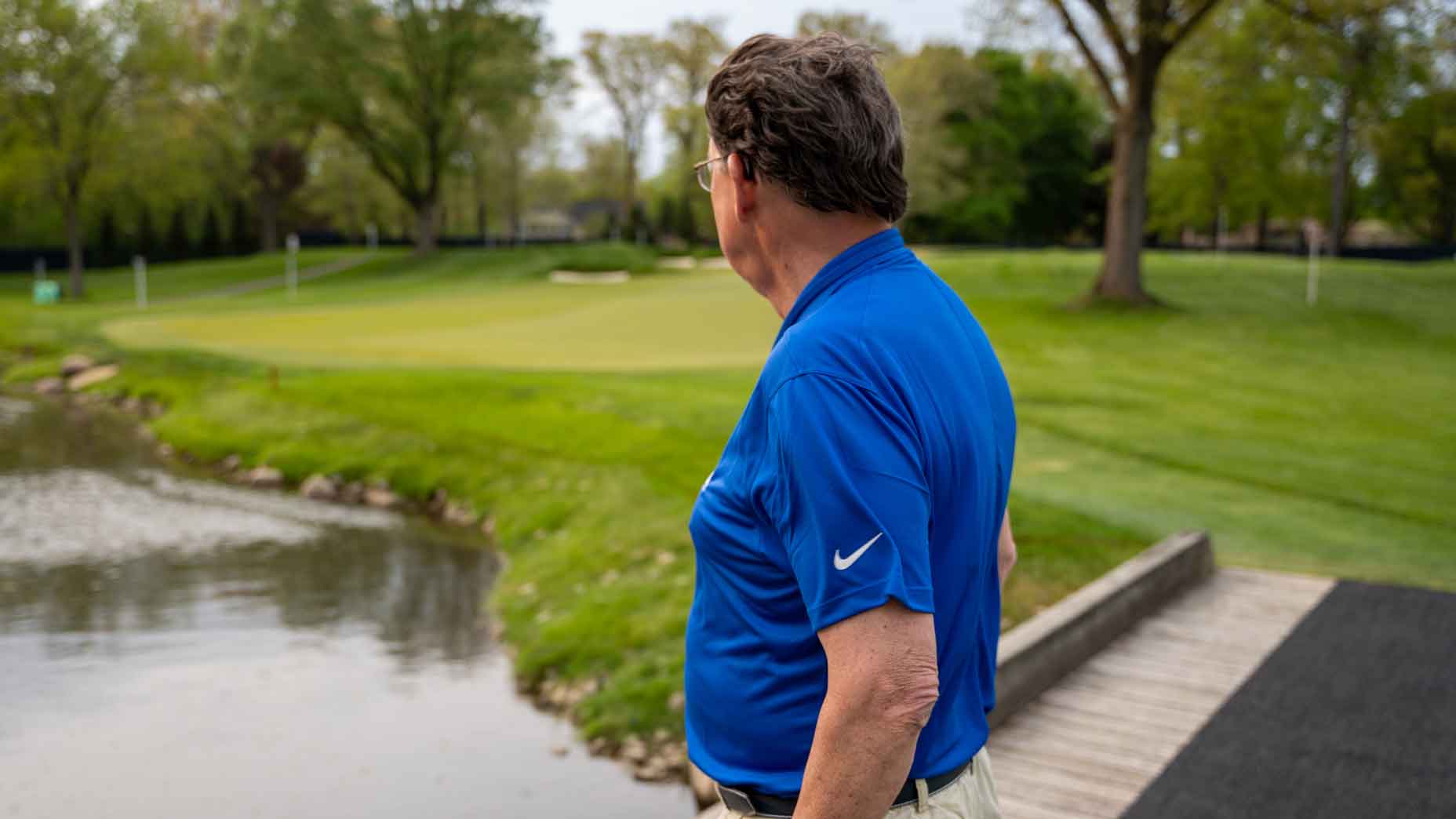
He didn’t. (For as long as I remember this story, I’ll never forget the look on his face. Think of being a combination of entertained, confused and relieved, and then contort your eyes, cheeks and mouth with that thought.) French played on. And Beltz and I were now at the spot we had come all this way for.
He took what was about to come next both seriously and enjoyably. Here was a longtime and well-known member of Oak Hill CC trying to summon a ghost at 6:30 in the evening, two days ahead of a major championship, and he was loving it.
What should I say, he asked.
Clear your head. Believe that you want to see him. Ask to.
And Beltz did. I did too.
We looked around. Though the early evening was beautiful, there was nothing. I thanked him for everything. I told him to tell his wife to blame me for being late. We shook hands and he left for home. I walked back to the tee, where I saw Aaron Rai walking up the sixth fairway. He’s a 28-year-old pro from England. He made a hole-in-one at this year’s Players. He uses iron covers — and once said the reason behind them is that he comes from a working-class family and that the covers remind him “to appreciate the value of what I have.” He’s someone you hope wins. After he teed off on 7, we walked and talked.
Did he believe in ghosts?
He laughed. He paused.
“Yes.”
Really?
“Yes.”
This was good. I told him the story. What did he think?
“Regretting being out here at 7.” Rai laughed.
We continued. Why did he believe in ghosts? Most people I talked with didn’t.
“I think a ghost is also a spirit,” Rai said. “I think all living things have some kind of spirit. I just believe that; there’s more to living beings than just our physical form.”
I told him about my coaching. “I’m regretting doing this interview now,” he joked. To reassure him, in the middle of the 7th fairway, I showed him the old page clippings that got all of this started. He read them. We walked to the water.
Rai called out. I called out. Nothing.
“Let’s try together this time,” Rai said. We did.
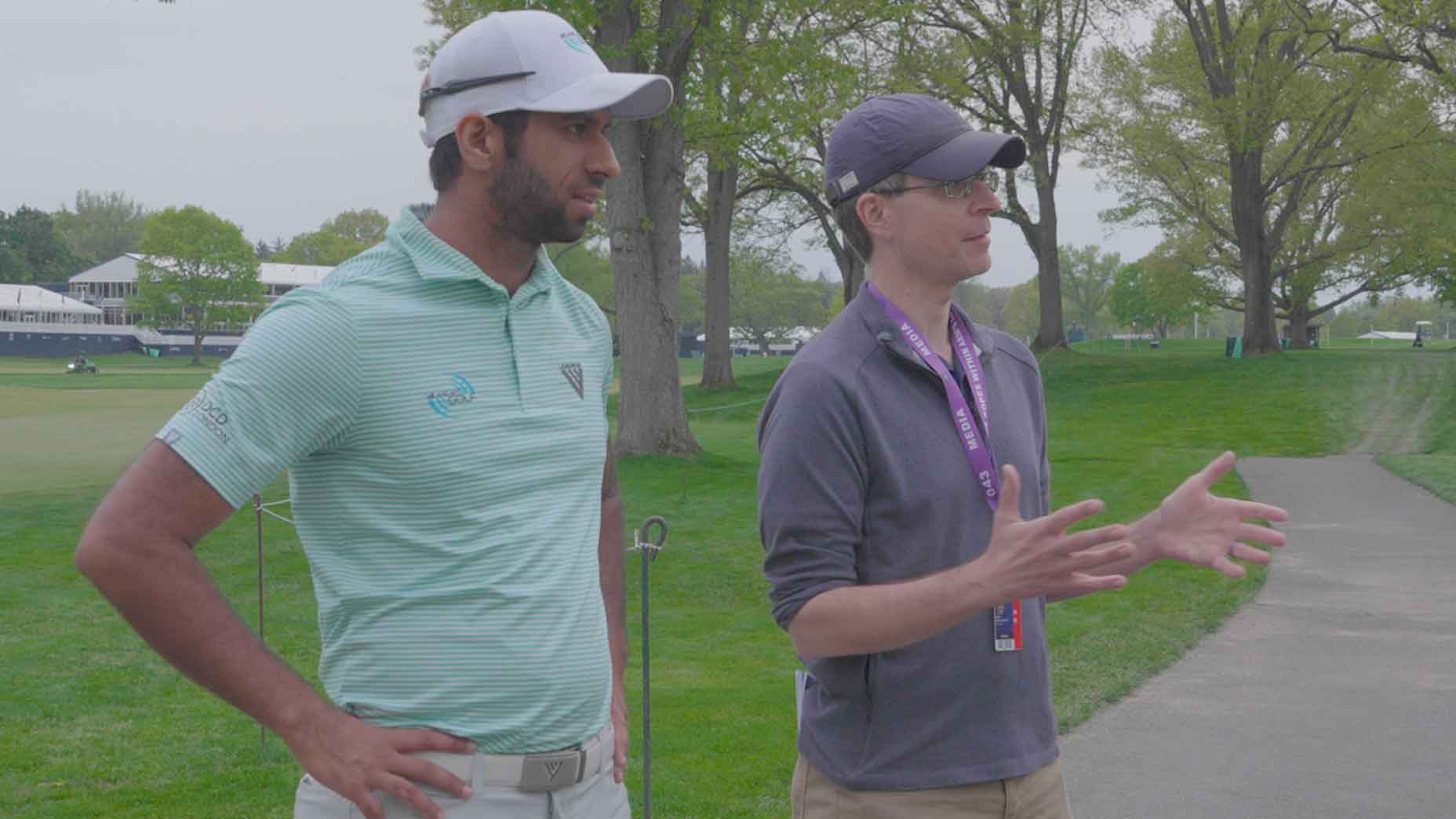
Nothing, though it was fun. I had never searched for a ghost of a long-ago famous performer with a contender for a major championship two days ahead of said tournament. Though I didn’t ask, I can safely assume he hadn’t done so with a golf writer. We shook hands.
“Thank you very much for that,” Rai said. “It was awesome.”
He left for the green. I stuck around. I’d give it another shot at sundown.
I sat on the wooden bridge. It was getting cooler out. Windier. The course maintenance was done. It was quiet. You could say serene.
A bit later, I heard the voice.
“Hey.
“Heyyyy.”
This had been a journey. The tweet. The talk with Beltz. The search with him. The talk with Fiandach. The coaching from her. The dive into Buffalo Bill’s history. And now a voice calling out to me, at 8-ish on May 16, 2023, at Oak Hill Country Club in Rochester, N.Y., host of this year’s PGA Championship.
I looked up.
It was a police officer about 100 yards away.
“What are you doing over there?”
Oh, do I have a story for you.

